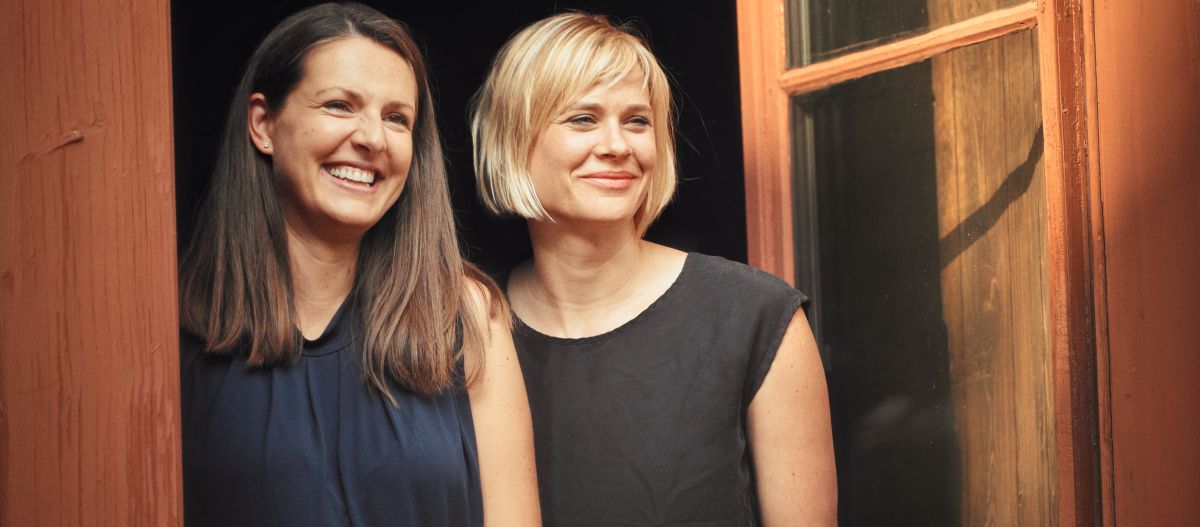
Arijana Walcott and Sophie Lamparter founded the incubator DART Labs last year and have now transformed the organisation into an independent company, offering a broad range of services. In an interview with Startupticker, Walcott reveals the plans for DART Labs, explains the offering for start-ups and the business model. She also shares insights into starting as a service provider.
Last year, DART Labs (formerly known as DART17) was launched to provide early-stage Swiss startups with a platform for testing new ideas, get market access in San Francisco and meet the right partners to support them on their founding journey. The core focus areas of the program are projects changing the way we interact with technology, data and information, so-called human-machine interfaces such as 3D, augmented reality, virtual reality, Automation and robotics. Last year Startupticker shared an article on the launch of the program; today, various changes have occurred in across different dimensions of the incubator. In an interview with Startupticker, Arijana Walcott, co-founder and CEO of DART Labs Switzerland shares new insights and informs about the changes that transpired in the previous year.
Startupticker: What are the most important changes that have occurred since you launched?
Arijana Walcott: A lot has changed within the past year. Apart from changing the company name from DART17 to DART Labs, we are now an incorporated company with headquarters in Zurich where we scout, screen and mentor startups. Previously we were a non-profit organization focusing on supporting 5 -10 startups annually. However, because we wanted to scale and increase our service offering, we changed our model to become an independent for-profit company. As part of the new model, we are also increasing the number of startups that will benefit from the program to up to 20 every year.
You are now a for-profit company; how do you generate revenues?
Currently, our revenue stems from innovation consulting. I am supporting the Nivea Brand with their Augmented Reality strategy; Sophie is building up US Partnerships for Mindmaze. The work with corporates and other more established companies is important for us because it helps us understand how potential clients of our Startups function and what their needs are. It also gives us better access when it comes to match-making between the two. Startups do not pay any fees for the program, however, there is an exchange of equity in the form of a convertible note or warrant agreement) equivalent to the cost of the service we provide.
How many startups overall do you have in the pipeline as now?
In addition to the startups that we started with like Struckd, Apelab, Imverse, or Humanising Autonomy, we have added new projects such as Metaphysics - an EPFL Spinoff that incorporated as a startup three weeks ago and RE/ME that joined us through an international hackathon. We also have Déguster l'augmenté, a project of Erika Marthins focusing on food augmentation by integrating data directly into the surfaces of food, for instance, a music record made out of chocolate. You can play music from the record and later eat it too. Marthins's project brings a new approach to how we interact with food to a whole new level that we have not seen before. The project is still in stealth mode but has already attracted a great deal of attention from clients. So, besides these projects, we are currently screening more startups to expand our portfolio.
You are also planning to support startups with financing their companies. How does the financial part relate with Dart Labs?
As part of our support package at DART Labs, we want to provide startups access to finance to enable them to realize their projects. Startups in our lab will receive investment which consists of two parts: cash and value add services through the incubator program. We have a service catalogue that will be configured for each startup to best address their needs. In return for the investment, we will obtain convertible notes from the early-stage startups and equity at a later stage, as the startups progress.
Is the financial service only open to the startups participating in the DART Labs Incubation program?
Yes. The application process is pretty simple though. There are just a few criteria to meet: they must have a working prototype, their ideas should be designed to change or influence the way we interact with technology and data and finally, their ideas should be in any of the fields round human-machine interfaces.
You and Sophie Lamparter are providing services for startups at the same time you are running DART as founders: How does this impact how you work?
For over a year now we were supporting and coaching startups through DART but while still having “day jobs”. Now that we have started our own company, we understand the hurdles the startups go through to establish a successful venture - we feel their pain. We have learned a lot along the way, for instance, how to define a compelling business model, find investment and so on. All-in-all, we understand what startups undergo along their journey and therefore we try to support help them as much as we can. It is challenging being an entrepreneur, but it is also a rewarding experience. This is what keeps us moving forward.
There are several ongoing discussions about female quotas in the startup scene. Yourself being a female founder how would you encourage the ladies out there?
It is important to believe in oneself and not to be afraid to start. Expect rejection but don't take it personally. And be confident. In yourself, in your vision and in your worth. You are not an impostor, you have every right to be where you are - and what you don’t (yet) know today you will learn along the way. And get mentors and sponsors early on.
Photo: L-R Arijana Walcott and Sophie Lamparter, co-founders of DART Lab























































Please login or sign up to comment.
Commenting guidelines